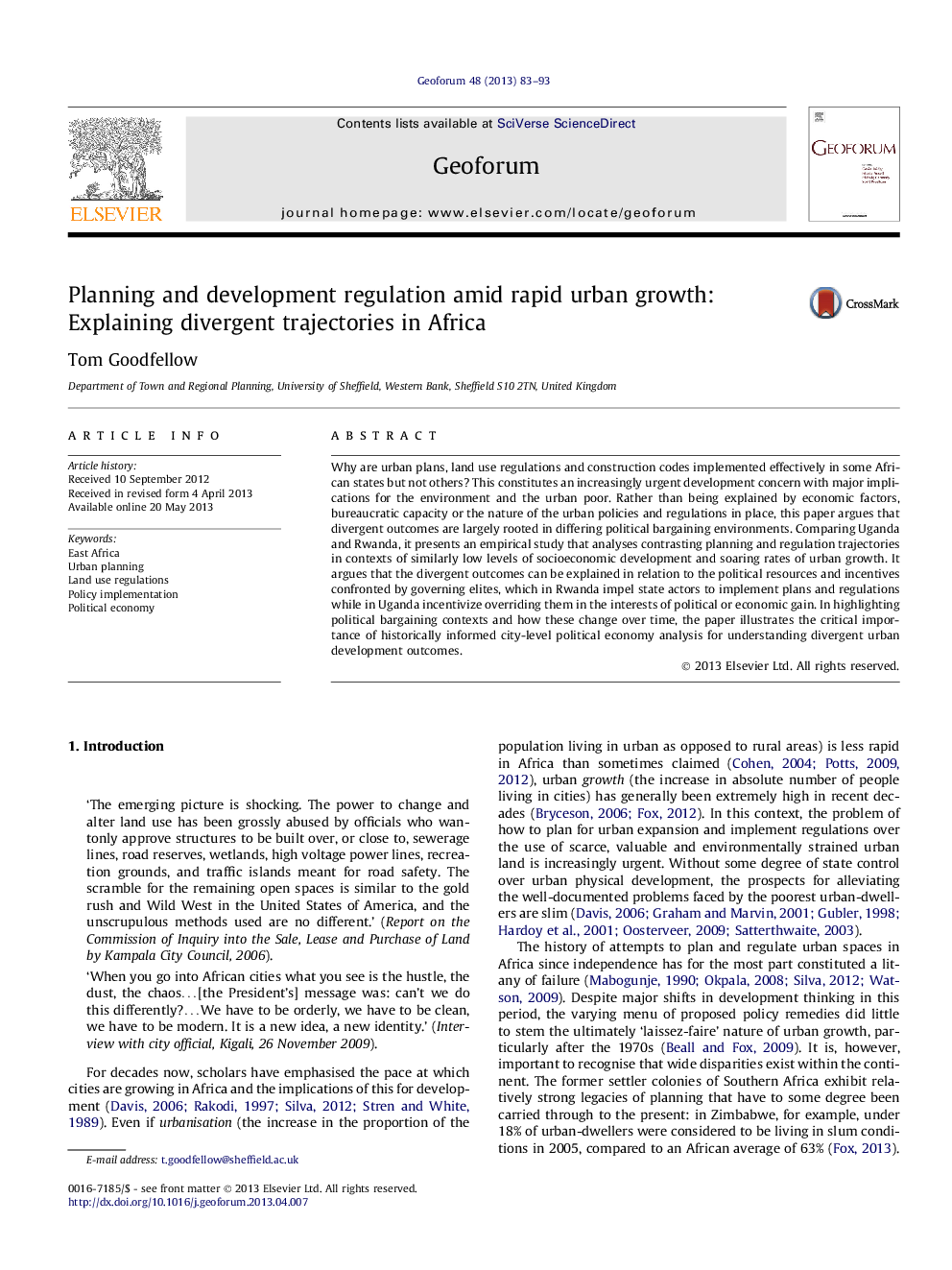| Article ID | Journal | Published Year | Pages | File Type |
|---|---|---|---|---|
| 5074246 | Geoforum | 2013 | 11 Pages |
â¢Failures of planning and regulation in African cities are widely misinterpreted.â¢Rwanda and Uganda are extreme cases of effective versus ineffective implementation.â¢Their trajectories are best explained through the political bargaining environment.â¢In Uganda, regulations are often purposely rendered impotent by political elites.â¢In Rwanda, a unique political calculus both incentivises and facilitates planning.
Why are urban plans, land use regulations and construction codes implemented effectively in some African states but not others? This constitutes an increasingly urgent development concern with major implications for the environment and the urban poor. Rather than being explained by economic factors, bureaucratic capacity or the nature of the urban policies and regulations in place, this paper argues that divergent outcomes are largely rooted in differing political bargaining environments. Comparing Uganda and Rwanda, it presents an empirical study that analyses contrasting planning and regulation trajectories in contexts of similarly low levels of socioeconomic development and soaring rates of urban growth. It argues that the divergent outcomes can be explained in relation to the political resources and incentives confronted by governing elites, which in Rwanda impel state actors to implement plans and regulations while in Uganda incentivize overriding them in the interests of political or economic gain. In highlighting political bargaining contexts and how these change over time, the paper illustrates the critical importance of historically informed city-level political economy analysis for understanding divergent urban development outcomes.
